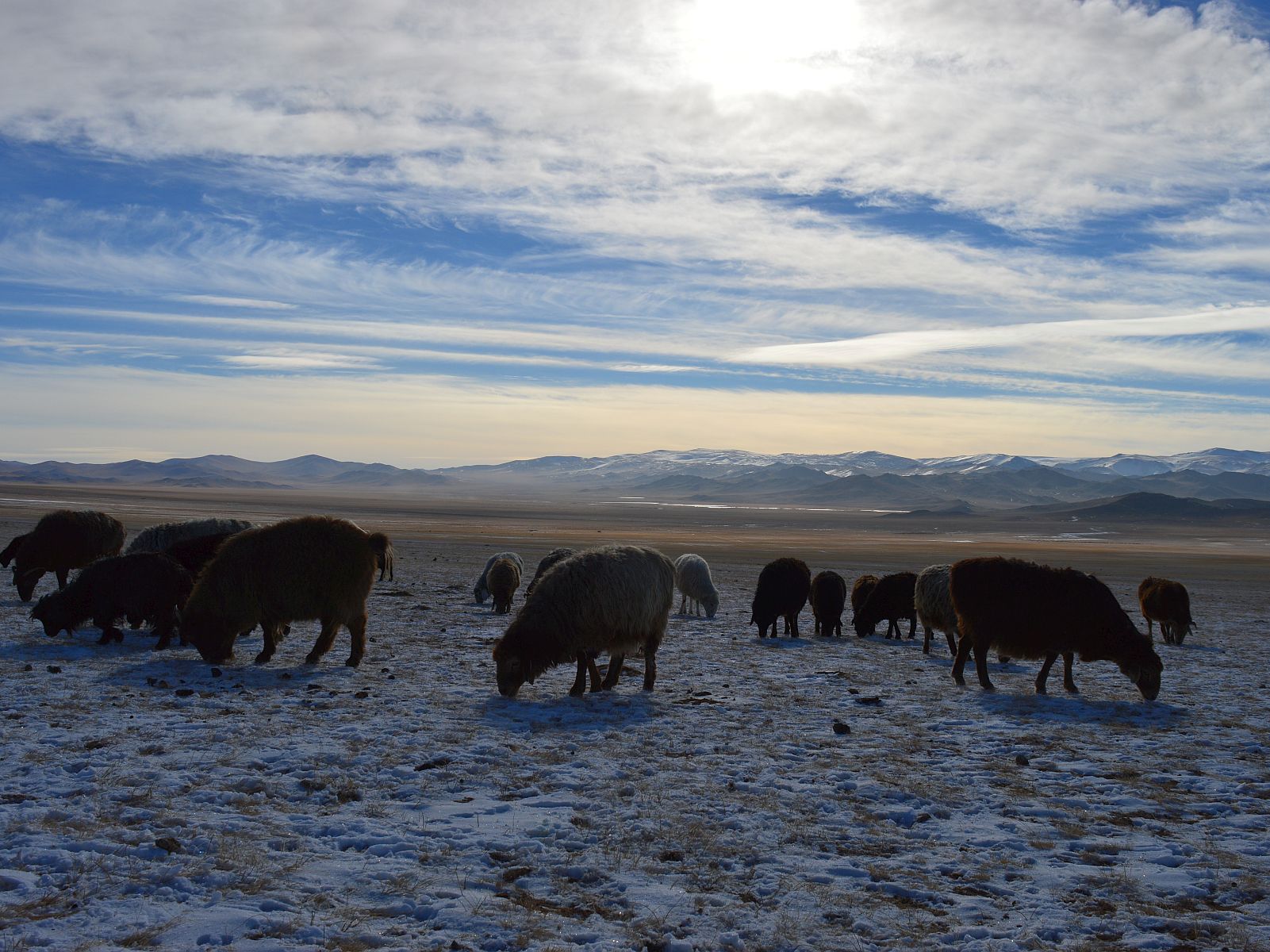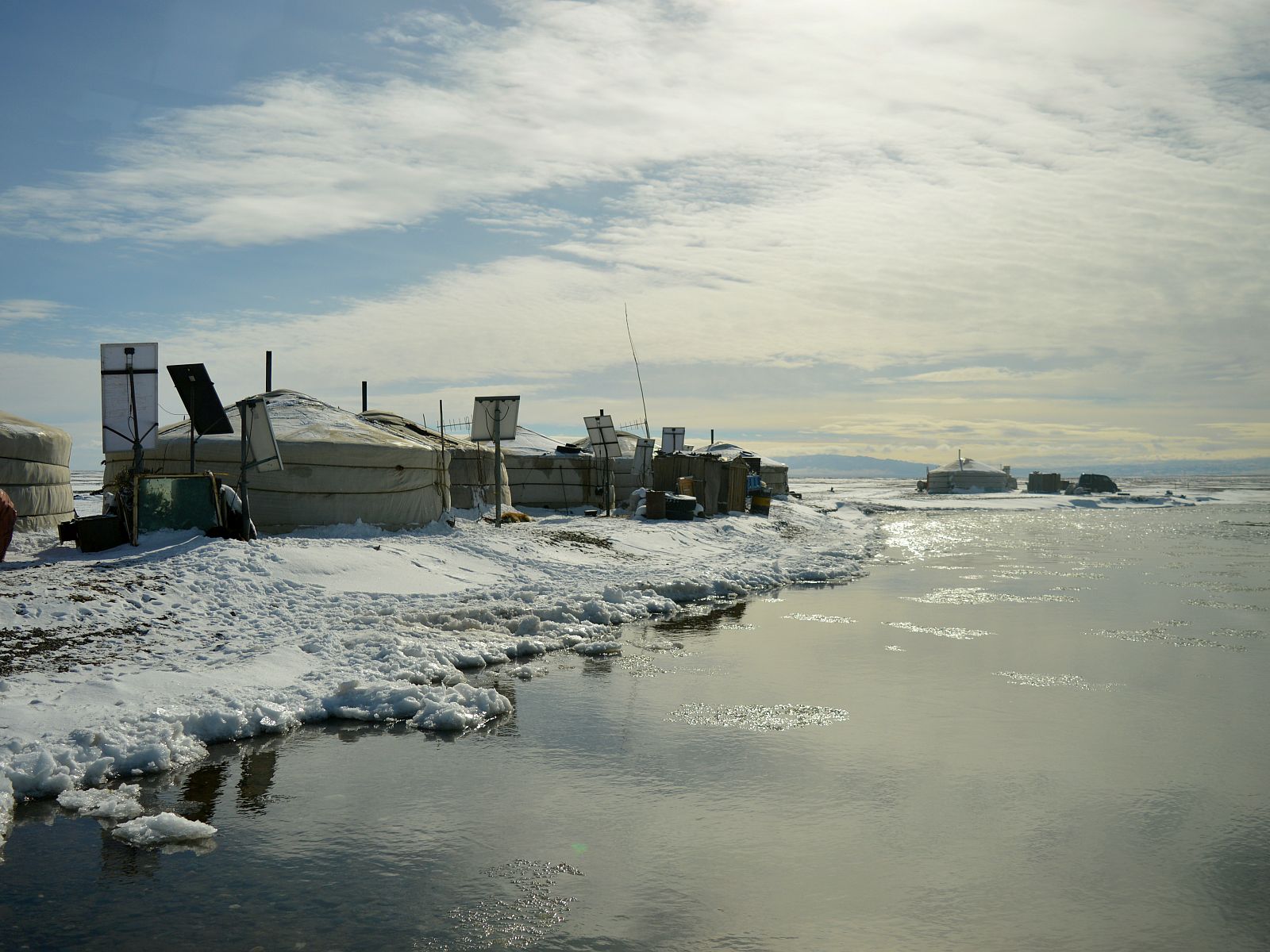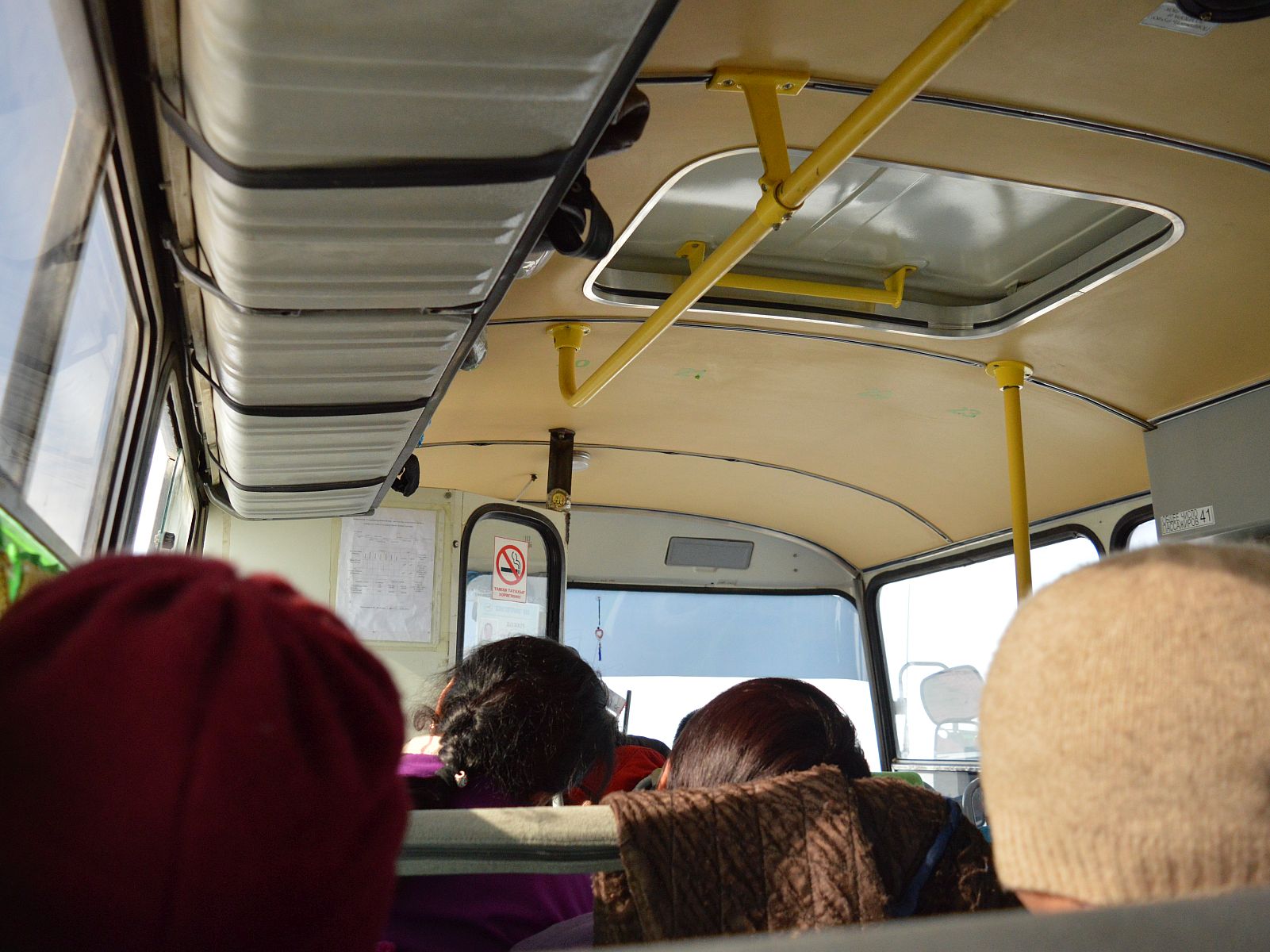A Mongolian Bus Ride To Remember

I started my journey from Mongolia’s capital, Ulaanbaatar, the only real connection point for most of the country’s transport network — much like the center of a spider’s web. Except unlike a spider’s web, which is normally extraordinarily neat at its center point, the bus station there was anything but. It consisted not of a building with bus terminals, as most bus stations in the world, but as a series of parking lots, each one more chaotic than the last.
It was October and winter was just beginning to take hold. It had snowed two days previous. On the day I arrived, the once white snow was now covered in a layer of black coal dust and grime. Every breath I took seared the insides of my lungs with cold air and despite my thick, down jacket, I could not keep my own body heat from escaping into the chill of the outside air.
I had booked my ticket to Bayan-Ölgii, a town in the far westernmost part of the country, the day before and now grasped the flimsy piece of pink paper in my slowly reddening hand. Unable to make sense of the confusion, I showed my ticket to various locals and allowed them to direct and guide me until I was standing in the third and most chaotic parking lot of all.
The buses, mostly old and decrepit with more repairs than original material left, were parked at haphazard angles on either side of the dirt ground. Buses lurched and rolled over potholes the size of small ponds that were filled with a mix of slush, ice and mud. More than one vehicle had to be pushed and pulled out as tires span and spat blackened ice everywhere.
Yet somehow, amid the disarray, the bus I was waiting for arrived a few minutes before it was scheduled to leave, and it parked up right next to where I was waiting. How the locals had known where I should stand I have no idea, but thanks to them I was able to find and board my bus.
To my surprise, I was one of only four passengers to board the bus, and we were soon on our way. Or so I thought.

Less than five minutes and a mile down the road, the bus pulled off the road and into what appeared to be a garbage dump. Mounds of discarded plastic rose up around the edges of the compound and in the middle were two yurts, the traditional round houses found in Mongolia. Each had a crooked metal chimney protruding from the center of their roof and a wooden door covered with scraps of brightly colored fabric arranged in some kind of artistic design. Behind them, tall, grey, concrete tower blocks scarred the skyline and dwarfed these one-roomed nomadic homes.
It became clear that this was a second bus station and, although not as busy as the previous one, was where most of the passengers and packages, had been waiting. I was immediately ushered off the bus and watched as, for the next hour, the driver and his son played Tetris with more luggage than I thought possible to cram onto the bus. The seats at the back were pulled up and folded away to make space for huge sacks of corn and rice, brown cardboard boxes and heavy bags.
The flooring of the bus was also pulled up, and an assortment of bags were placed where it had been and then covered by the flooring that was replaced on top. Cavities under seats were packed tightly and leg room was given up in favor of yet more luggage. Every inch of space was used and once everything was in, thick straps were used to secure everything into place. Finally, seats that had been removed from the back of the bus were unfolded and precariously balanced in the now raised aisle — additional seating for extra people.
After a final stop at the first of many long-drop toilets, hidden from view by only a thin sheet of corrugated iron, I was motioned to get back on the bus. I was directed to a seat on what was now the back row, thanks to all the luggage behind it, beside the window. At first I was excited — I had a front row seat to the world as I watched it go by. However, I quickly realized that the window was both a blessing and a curse.
It was, by now, late evening and the sun was setting. The sky was streaked with muted pinks and golds and even the polluted city of Ulaanbaatar looked beautiful in this light. But the night brought with it temperatures well below freezing, and being pressed up against the window meant that I felt every degree drop outside as the window and the condensation on it slowly froze. The cold seeped in through my layers chilling my shoulder and creeping into my core. I shivered and I was glad I had packed my sleeping bag in the bag now on my lap. I pulled it out and squashed it into the small space between me and the window.
The bus, customized with suspension, bounced and shook along the road and I bounced and shook along with it. We were so tightly packed that in spite of all the bouncing and shaking I could not move anywhere and soon I was drifting in an out of consciousness, rocked to sleep by the bus and kept upright by the people.

The following morning I woke up to more open space than I had ever seen in my life. The approximate 1,000-mile route from Ulaanbaatar to Bayan Olgii follows roads for only parts of the journey — the rest could be described simply as “off-road.”
For hundreds of miles at a time we would pass no sign of civilization — just empty space, desert, mountains and the occasional river. These rivers were half-frozen and half-flowing and the driver, undeterred by such an obstacle would simply speed up toward and through them as the water splashed high up the sides of the bus.
The few settlements we did see were usually communities of off-white yurts, hardly noticeable in the barren landscape except for the smoking chimneys that gave them away. They were usually accompanied by an assortment of animals: flocks of sheep and goats, herds of yaks and trains of camels adorned the otherwise empty landscape.
We stopped only occasionally on route. The driver and his son swapped every eight hours, alternately driving and sleeping in the makeshift bed built where a front passenger seat might normally be. Whoever was not driving would curl up under the woolen blanket with the driver’s daughter, a young girl of around 3 or 4.
These stops were also our only opportunity to go to the toilet. Sometimes we stopped in a gas station but more often we stopped in the middle of nowhere. I actually preferred the empty spaces to the stinking fuel station long drops. Squatting in the wilderness has its advantages: though there may be no privacy, there is also no smell.
We stopped once for an hour that first day at a small town with a few wooden shack restaurants. My body was stiff from being stuck in a single position for most of the past 18 hours. I was grateful to be able to get off the bus and walk around. I joined the other passengers inside the cafe and was served traditional Mongolian chai: a blend of black tea, unpasteurized yak’s milk and salt. The first taste to the foreign tongue is unpleasant but, glad of the warmth, I drank plenty anyway. Little did I realize that by the time I left Mongolia, I would grow to enjoy this national drink. Served alongside the tea were plates of steaming hot mutton dumplings, also known as buuz, the fat oozing out of them and solidifying in a white mess at the bottom of the plate. They were delicious and I ate five in no time.
The second night passed much as the first night in fitful sleep until I woke just before the sun rose when the bus ground to an unwelcome halt. The sudden stillness disturbed me from my slumber and in the murky darkness I tried to determine what was happening.
It soon became clear, from the banging and clunking coming from the engine at the front of the bus, that the bus had broken down.
As the sun rose, the true reality of the wilderness we were in became obvious. There was nothing as far as the eye could see except for blueish-gray mountains in the distance and the glowing pink tendrils of clouds across the sky.
Instead of anger or anxiousness, I witnessed humanity at its best as the passengers, myself included, huddled to stay warm inside the bus. Though we had all been strangers just a few days before, the closeness of the bus had forged between us a community.
We shared fruit, bread and biscuits between us for our makeshift breakfast. Adjustments and readjustments were made to ensure everyone was as comfortable as possible in the cramped space available. Cards were produced, games played and laughter bubbled in the fresh morning air. A small cheer went up from the crowd of men now gathered round the engine as it rattled back into life and we started back on our way.
Later that day, 48 hours since we had left Ulaanbaatar, we arrived in Bayan Olgii. As I dismounted the bus onto the pavement outside, passengers that I had shared the past two days with gave me hugs and waves before we parted ways. It may not have been a comfortable journey, but it was one I will find hard to forget.
 Laura loves to explore the wild places of the world and is always looking for unusual journeys to take her there — the more adventurous, the better! She writes about her adventures on WanderlustForWildplaces.com.
Laura loves to explore the wild places of the world and is always looking for unusual journeys to take her there — the more adventurous, the better! She writes about her adventures on WanderlustForWildplaces.com.
